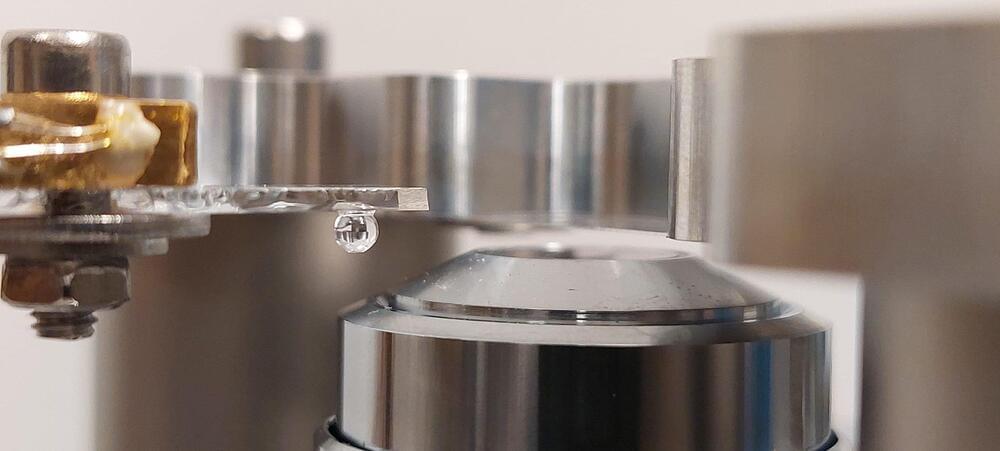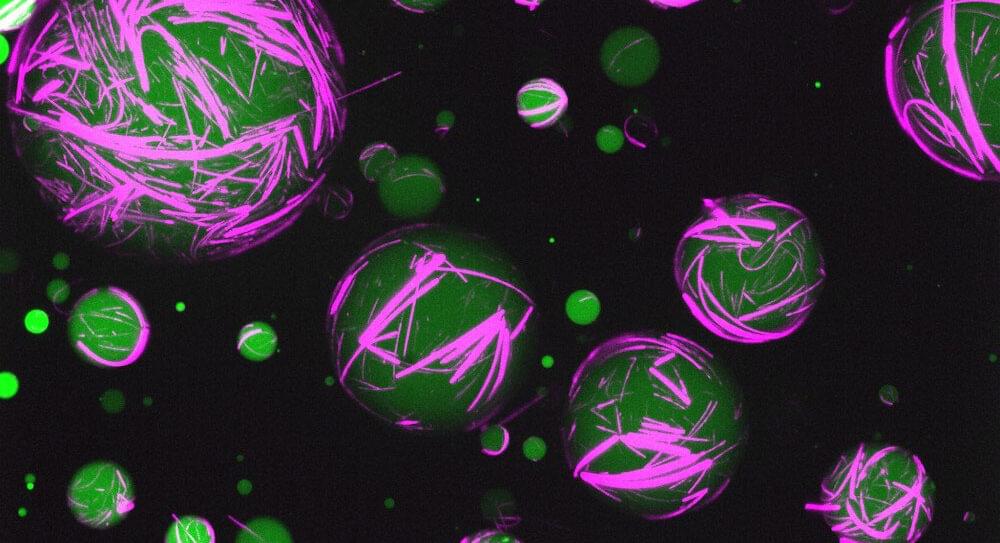Page 9
Apr 24, 2024
Some people don’t experience stress. Are they happier?
Posted by Arthur Brown in category: health
Research shows that some types of stressors—and the way we react to them—can actually be beneficial to our overall health and well-being. Here’s how.
Apr 24, 2024
New SpaceX Starship Lunar Cargo Lander Design Unveiled by NASA
Posted by Chris Smedley in category: space travel

What modifications will be made to SpaceX’s Starship for the Artemis missions?
— The cargo version of SpaceX’s Starship will be adapted from the human Landing systems for Artemis missions, with modifications focused on payload interfaces and deployment mechanisms, excluding human life support systems, and featuring a payload door, elevator system, and potential adaptations for larger payloads such as Rovers.
Apr 24, 2024
Time Stops at the Speed of Light. What Does that Mean?
Posted by Dan Breeden in category: physics

Check out my course on Brilliant! First 30 days are free and 20% off the annual premium subscription when you use our link ➜ https://brilliant.org/sabine.
You might have heard that according to Einstein’s theories of special and general relativity time doesn’t pass for light, or that time actually stops for light. Can this possibly be correct? In this video, I will look at what the maths says and discuss what it means.
Continue reading “Time Stops at the Speed of Light. What Does that Mean?” »
Apr 24, 2024
Scientists Solve Decades-Old Microscopy Problem
Posted by Paul Battista in categories: biotech/medical, innovation
Studying tissues, cells, and proteins under a microscope is essential for disease prevention and treatment. This research requires accurately measuring the dimensions of these biological structures. However, when viewed through a light microscope, these samples can sometimes appear more flattened than their true form.
Researchers at Delft University of Technology have now demonstrated for the first time that this distortion is not constant, contrary to what many scientists have assumed for decades. The breakthrough, published in Optica, confirms a prediction by Nobel laureate Stefan Hell from the 90s. With an online calculation tool and software, every researcher can now determine the correct depth of a biological sample.
Apr 24, 2024
Ghost Particles: Neutrinos Challenge Everything We Know About Physics
Posted by Paul Battista in category: particle physics
The discovery and ongoing research into neutrinos have significantly altered the foundational concepts of particle physics, highlighting the particles’ mass and challenging the accuracy of the standard model.
In the 1930s, it turned out that neither the energy nor the momentum balance is correct in the radioactive beta decay of an atomic nucleus. This led to the postulate of “ghost particles” that “secretly” carry away energy and momentum. In 1956, experimental proof of such neutrinos was finally obtained.
The challenge: neutrinos only interact with other particles of matter via the weak interaction that is also underlying the beta decay of an atomic nucleus. For this reason, hundreds of trillions of neutrinos from the cosmos, especially the sun, can pass through our bodies every second without causing any damage. Extremely rare neutrino collisions with other particles of matter can only be detected with huge detectors.
Apr 24, 2024
Inside the Race to Revolutionize Quantum Computing
Posted by Paul Battista in categories: quantum physics, robotics/AI

AI is the technology trend of the moment—but what’s 10 years down the road? Some experts say quantum computing will be the next game changer. WSJ visited IBM’s quantum computing lab to learn why.
Apr 24, 2024
Taste Buds Meet Technology: AI’s Impact on Personalized Taste Experiences
Posted by Shubham Ghosh Roy in categories: food, robotics/AI
The recent collaboration between Kaffa Roastery and Elev highlights the potential of AI in food science, particularly in creating personalized taste experiences.
Taste Buds Meet TechnologyThe recent collaboration between Kaffa Roastery and Elev, a Finnish AI consultancy, has shed light on the potential of artificial intelligence in the world of food science. By leveraging AI models to create a unique coffee blend tailored to enthusiasts’ tastes, this partnership has opened up a new realm of possibilities for personalized food experiences. But what if AI could go beyond just coffee blends? Imagine a future where AI can help individuals discover their unique taste profiles and create recipes specifically designed for their palates. This new approach to cooking could transform the way we think about food and our relationship with it.
Apr 24, 2024
Artificial Cells Built with Programmable Peptide-DNA Cytoskeletons
Posted by Jose Ruben Rodriguez Fuentes in categories: bioengineering, biotech/medical, life extension, nanotechnology
Unlike the rigid skeletons within our bodies, the skeletons within individual cells—cytoskeletons—are changeable, even fluid. And when these cytoskeletons reorganize themselves, they do more than support different cell shapes. They permit different functions.
Little wonder, then, that scientists who build artificial cells hope to create synthetic cytoskeletons that act like natural cytoskeletons. Synthetic cytoskeletons capable of supporting dynamic changes in cell shape and function could enable the development of novel drug delivery systems, diagnostic tools, and regenerative medicine applications.
Synthetic cytoskeletons have incorporated building blocks such as polymers, small molecules, carbon nanotubes, peptides, and DNA nanofilaments. Mostly DNA nanofilaments. Although they offer programmability, they can be hard to fine tune. To get around this difficulty, scientists based at UNC Chapel Hill led by Ronit Freeman, PhD, investigated the relatively unexplored possibilities offered by peptides. Specifically, the scientists engineered artificial cells using a programmable peptide–DNA nanotechnology approach.
Apr 24, 2024
Traditional Japanese Diet associated with Less Brain Shrinkage in Women compared to Western Diet, says research
Posted by Natalie Chan in categories: biotech/medical, genetics, health, neuroscience
Cognitive decline and dementia already affect more than 55 million people worldwide. This number is projected to skyrocket over the next few decades as the global population ages.
There are certain risk factors of cognitive decline and dementia that we cannot change – such as having a genetic predisposition to these conditions. But other risk factors we may have more power over – with research showing certain modifiable lifestyle habits, such as smoking, obesity and lack of exercise, are all linked to higher risk of dementia.
What role nutrition plays in preventing cognitive decline and dementia has also been the focus of scientific research for quite some time.















